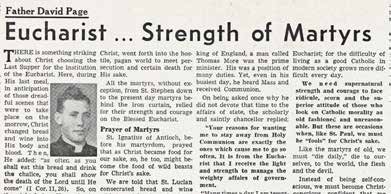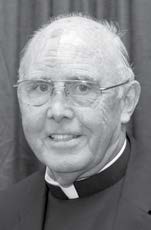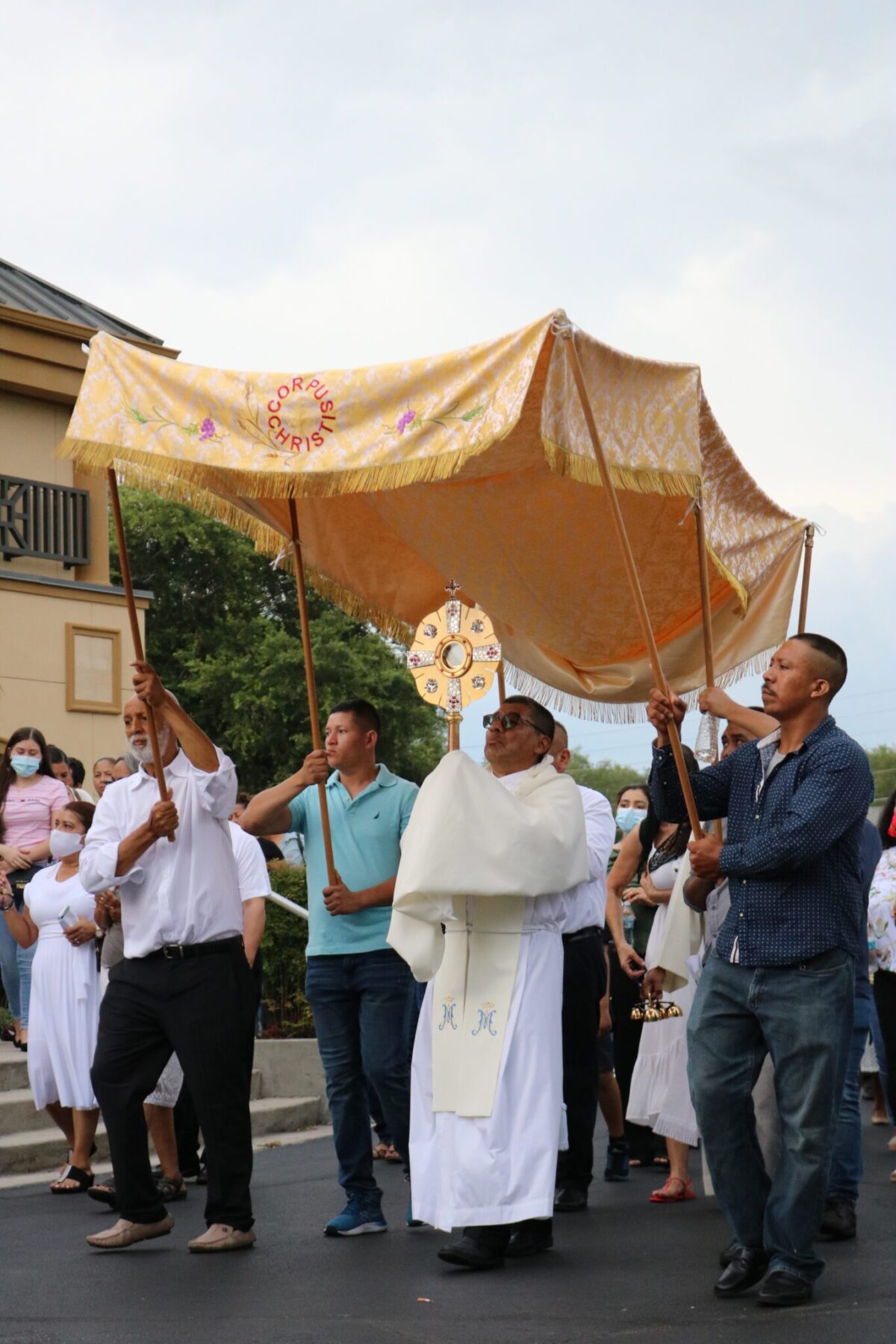Editor’s note: The following is an excerpt of an article written by Father David Page (now a monsignor) that was published in the Florida Catholic Dec. 4, 1959. Father Page served as executive editor of the Florida Catholic from September 1966 to June 1990. He is currently retired and assists at Holy Name of Jesus Parish in Indialantic. Now 90, Msgr. Page celebrated 64 years as a priest in June.
ORLANDO | There is something striking about Christ choosing the Last Supper for the Institution of the Eucharist. Here, during His last meal, in anticipation of the dreadful scenes that were to take place on the morrow, Christ changed bread and wine into His body and blood.
Then He added: “as often as you eat this bread and drink the chalice, you shall show the death of the Lord until He come,” (1 Cor. 11, 26). So, on the night before He made the supreme sacrifice of giving His life for us, Christ gave us His body as nourishment.
Ever since that memorable night, the blessed Eucharist has been regarded as the food of Christians and the strength of martyrs.
The Apostles and first followers of Christ, daily nourished and fortified with the body of Christ, went forth into the hostile, pagan world to meet persecution and certain death for His sake.

Prayer of the Martyrs
St. Ignatius of Antioch, before his martyrdom, prayed that as Christ became food for our sake, so too might he become food of wild beasts for Christ’s sake.
We are told that St. Lucian consecrated bread and wine with bound hands as he faced martyrdom.
But we must bear in mind that, like you and I, the martyrs were by nature weak and feeble men and women. They too were surrounded by the ever-present inclinations to come from self-love and unruly passions. They knew that human nature, left to itself, is unable to overcome the allurements of the world.
But they fully realized that the Blessed Eucharist is not only a means of purifying the soul from its daily faults, but that it is a source of grace and strength to help sinners in the hard struggle of life.
Have we forgotten?
If we do not derive the same nourishment and strength for Holy Communion as the martyrs did, we have only ourselves to blame. Could we have forgotten what is that really and truly constitutes a preparation for Communion? If there is one lesson above others which we must learn from the martyrs, it is this: that we cannot share in Christ banquet unless we first share in His cross.
Our best preparation for Communion is to actually participate in His sufferings. We must be co-victims with the victim on the altar. The secret of the martyrs consists in this: that they not only made use of their daily sufferings as a preparation for Communion, but also made Holy Communion as a preparation and source of strength for the endurance of future sufferings.
In the early 16th century when Henry VIII reigned as king of England, a man called Thomas More was the prime minister. His was a position of many duties, yet, even in his busiest day, he heard Mass and received Communion.
On being asked once why he did not devote that time to the affairs of state, the scholarly and saintly chancellor replied: “Your reason for wanting me to stay away from Holy Communion are exactly the ones which cause me to go more often. It is from the Eucharist that I receive the light and strength to manage the weighty affairs of government. Many times a day I am tempted to sin; it is through my Communion I overcome these temptations.”
Later, when Henry VIII broke away from the Catholic Church, he expected his chancellor to do likewise. Thomas More was given the choice to serve God or king.

He chose God
Strengthen by the grace that comes only from the Eucharist, he chose God, and as a consequence he was beheaded. He now reigns gloriously in heaven and is honored on earth as St. Thomas More.
When we see what the Eucharist did for a man like that, we begin to realize what Holy Communion will do for us – and if such a busy man could find time to participate in the Mass and Holy Communion every day, then, surely, we can find time to receive the Bread of Angels, and the strength of martyrs more frequently.
Who knows. The day may come when our faith will be put to the test, and you and I may be asked to give our lives for Christ.
Trust in Christ
It would be the height of folly on our part to make light of such a threat. If, God forbid, that day should come, woe betide any of us who should rely on our natural courage and determination. Far better for us to rely on our own weakness and place our trust in the strength of Christ, which is the Eucharist.
But there is no need to wait for such an extreme situation before using the strength of the nourishment of the Blessed Eucharist; for the difficulty of living as good Catholics in modern society grows more difficult with each passing day.
We need supernatural strength and courage to face ridicule, scorn the superior attitude of those who look on Catholic morality as old fashioned and unreasonable. But these are occasions when, like St. Paul, we must be “fools” for Christ’s sake.
Like martyrs of old, we must “die daily” die to ourselves, to the world, the flesh and the devil.
By Monsignor David Page, Special to the Florida Catholic, June 29, 2023

